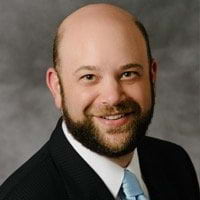Do I Have to Pay My Mortgage After a Divorce?
Recently, I spoke at Become A Better Agent, a seminar hosted by Insured Title Agency and Synergy Title Partners in Tampa Bay. One topic of my presentation was the identity of the proper party to sign and sell real estate, especially in a situation where the parties are divorced.
Many times, the party that loses the property or gives up the property in divorce believes they owe no obligation to the mortgage company. Unfortunately, this is untrue in most cases. However, before we get to that, we need to define the documents involved in a mortgage transaction.
The deed defines who owns the real estate. If property is owned by a husband alone (or a wife alone) then the spouse not in title has homestead rights to the property through the Florida Constitution (this is why marital status must be included on any deed in Florida). The divorce court has the jurisdiction or the authority to award the property to one spouse or the other in a divorce.
The promissory note identifies who borrowed money from the bank, at what interest rate, over what period of time, and the amount of the monthly repayment. Either husband, or wife, or both of them could sign the promissory note. Sometimes one spouse signs the promissory note without the other because: (1) the spouse owned the property before the marriage, or (2) one spouse has better credit than the other. The parties that sign the promissory note are responsible to repay the money to the lender (regardless of any divorce).
The mortgage is simply a lien against the property (at least in Florida – other states define that the owners get title only after paying off the mortgage). The mortgage describes that the bank can foreclose and repossess the property if the promissory note is not repaid. At the Become A Better Agent Seminar, it was said that there is no such thing as “mortgage payments” because it is the Note that defines what payments are due, not the mortgage. Technically, I agree with that explanation, but typically, most people describe that they have to make “mortgage payments.”
The parties responsible to sign the mortgage are: (1) the owners as described by the deed, (2) the person(s) who signed the promissory note, and (3) if only one spouse was in title and signed the promissory note, the other spouse must sign pursuant to the Florida Constitution and Florida Statutes.
Many times, I’ll describe to clients that the bank was not a party to the marriage, and cannot be a party to the divorce (even though financial issues may ultimately be a cause of the divorce). Accordingly, the divorce court has no authority to alter the obligation of either spouse in connection with the promissory note or mortgage, even though the divorce court can force one spouse or the other to give up the house.
Therefore, after the divorce is over, the spouse who did not sign the note but is a party to the mortgage may be a party to the foreclosure if the other spouse fails to make payments. The bank is NOT asking that non-obligated spouse to pay any money, and is simply asking the Court to make a determination that the non-promissory note spouse has an inferior position in the property. Similarly, If both spouses signed the note, then both spouses will be responsible to pay the note, even if one is awarded the house in the divorce.
What can be done to eliminate the liability of the spouse who no longer owns the property? Many times, only a bankruptcy is a viable option to eliminate the debt owed to the bank. Who has to sign the listing agreements and closing documents? Whoever owns the property via deed or divorce.
If you were divorced from your spouse and are getting foreclosure notices, please contact us to schedule a free initial consultation to discuss your options at 813-774-5737 or email me directly at shawn@yesnerlaw.com. Please also subscribe to the Crushing Debt Podcast, on Apple Podcasts, Spotify, and other podcast players, including Amazon Echo (“Alexa”) for more free information about these topics.
Shawn M. Yesner, Esq., is the host of the Crushing Debt Podcast and founder of Yesner Law, P.L., a Clearwater-based boutique real estate and consumer law firm that helps clients eliminate the financial bullies in their lives. We assist clients with asset protection, the sale and purchase of real property, Chapter 7 liquidation, Chapter 13 reorganization, bankruptcy, foreclosure defense, debt settlement, landlord/tenant issues, short sales, and loan modifications in Clearwater, Tampa, Westchase, Odessa, Oldsmar, Palm Harbor, Pinellas Park, Largo, St. Petersburg, and throughout the greater Tampa Bay area.




